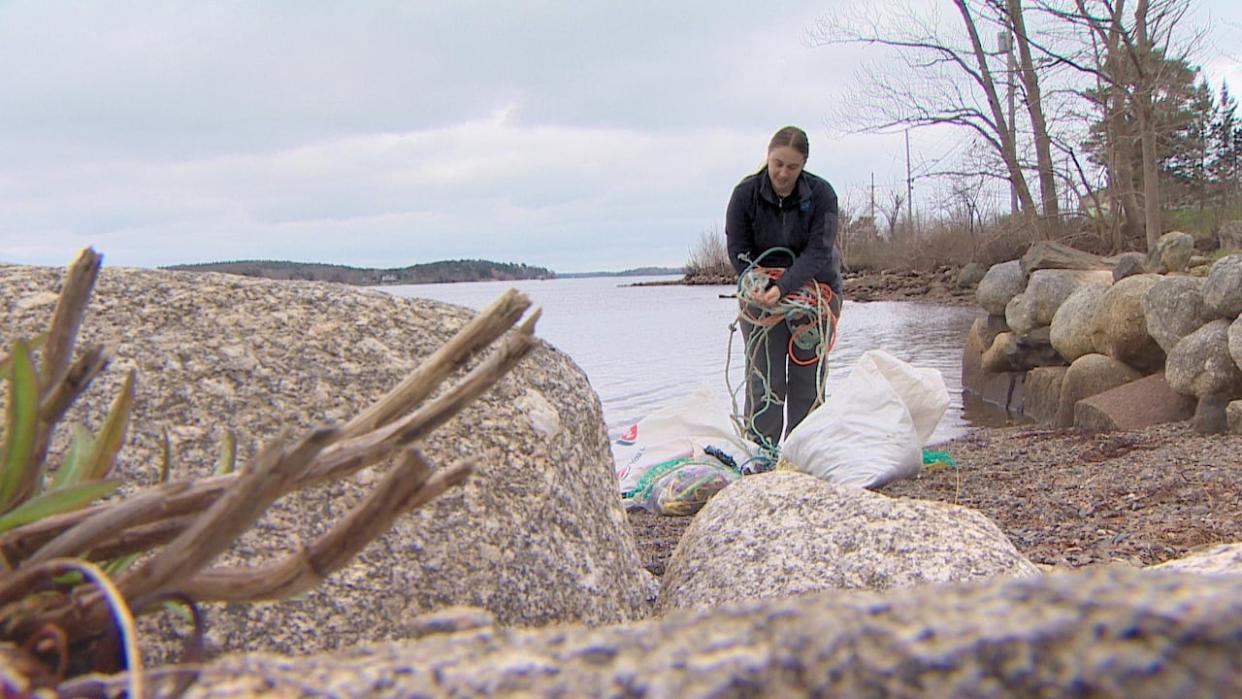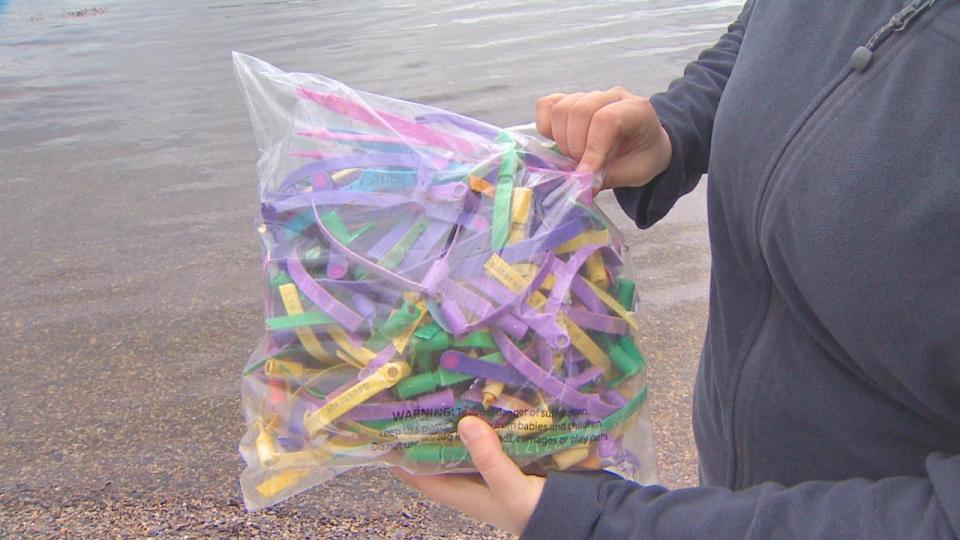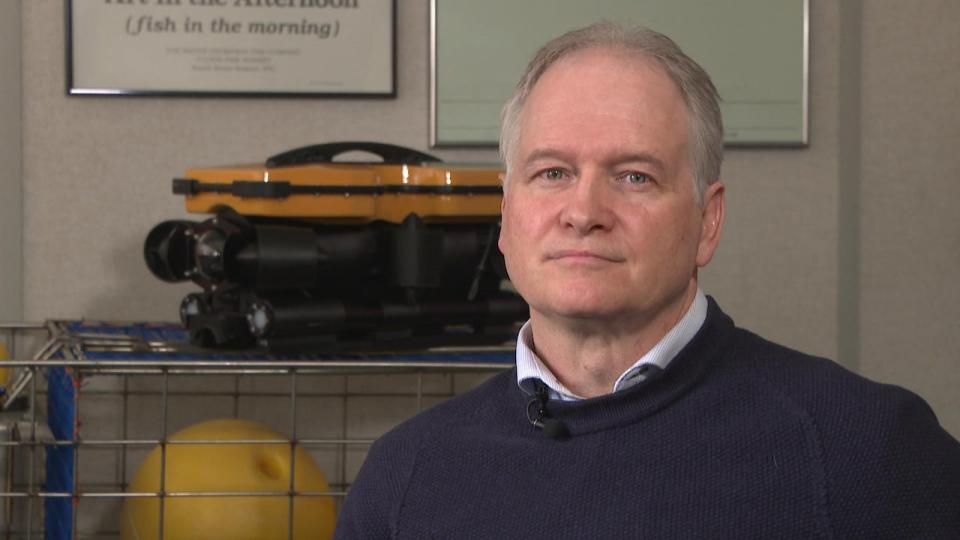Ghost gear cleanup groups anxiously await federal funding

Zora McGinnis of Coastal Action says she's stuck sitting on her hands when she should be booking boats and organizing cleanups of deadly ghost gear hidden beneath the surface of the murky Atlantic Ocean.
Coastal Action is one of the groups waiting for word on funding from the federal government for the removal of abandoned fishing gear. It's a multimillion-dollar effort that's been ongoing for years with assistance from Ottawa.
With no funding allocated so far this fiscal year, their future is now as murky as the harbours they clean.
"Groups like ours are really stuck in limbo," McGinnis said. "We can't hire, we can't make season plans, I can't contract any captains. So we're just stuck."

Ghost gear can take many forms, including abandoned nets and traps, as well as tags like the ones pictured here. (Patrick Callaghan/CBC)
Coastal Action and others rely on the Department of Fisheries and Oceans' ghost gear fund to support their work. DFO has put more than $58 million into the fund over the past four years to support 144 projects.
McGinnis said they received $725,000 in federal funding last year for their work in three provinces but haven't heard when — or if — they'll get money this year.
Despite that, the federal government insists it's still committed to removing ghost gear.
"The timelines may be a little different from last year, but the intent is still there to work with those groups to ensure that they're actively involved in being stewards of the ocean," said Mike Kelloway, the MP for Cape Breton-Canso and parliamentary secretary to the minister of fisheries and oceans.
Even if the money were to be announced today, McGinnis said, it takes months for groups to hire staff and contract boats. She said there's worry across the industry that the window for 2024 is closing.

Keith Hutchings, managing director of the Canadian Centre for Fisheries Innovation, says gear that's lost often still affects fish stocks. (Peter Cowan/CBC)
That's a problem for Keith Hutchings, managing director of the Canadian Centre for Fisheries Innovation. His group got involved in providing new technology for ghost gear retrieval after post-tropical storm Fiona washed fishing gear away from harvesters on Newfoundland's southwest coast in 2022.
Through the process, Hutchings said, they found gear that had been around for decades.
"With lost gear, the primary issue is it continues to fish," he said. "For a crab pot, if it continues to fish, it's ghost-gear fishing. It continues to take a valuable resource that's not able to be harvested commercially, and/or it certainly could affect the sustainability of various species."
Hutchings said he's hopeful the federal government will continue to see the value in their efforts and provide more funding in the future.
Microplastics, major problems
Jess Melvin studies the effects of ocean plastics on wild-caught food as the lab manager at the Civic Laboratory for Environmental Action Research at Memorial University in St. John's.
The lab looks specifically at the effects of ghost gear on ocean pollution. While the plastics may be micro, the problems they cause are anything but small.
"So many of these marine species that potentially could be ingesting plastics are also important wild food species," she said. "We don't want to see impacts of plastic pollution coming down the line to communities and people who depend on them for wild food."

Jess Melvin, Civic Laboratory for Environmental Action Research's lab manager, says many species that ingest plastic are crucial food sources. (Peter Cowan/CBC)
Melvin said fishing debris is one of the largest sources of microplastics in provincial waters.
"We just see a lot of debris that is derived from things that are identifiably from the fishing industry or aquaculture," she said. "Things from rope, net, buoys. It's quite identifiable."
Melvin said much of the plastic found inside sea creatures are hard to identify because it's so small, but they can often identify threads that are easily connected to the fishing industry.
She says it's crucial to fund projects that remove lost fishing gear from the ocean.
"It's a multifaceted issue and it's important to get it out while we can."
Download our free CBC News app to sign up for push alerts for CBC Newfoundland and Labrador. Click here to visit our landing page.


